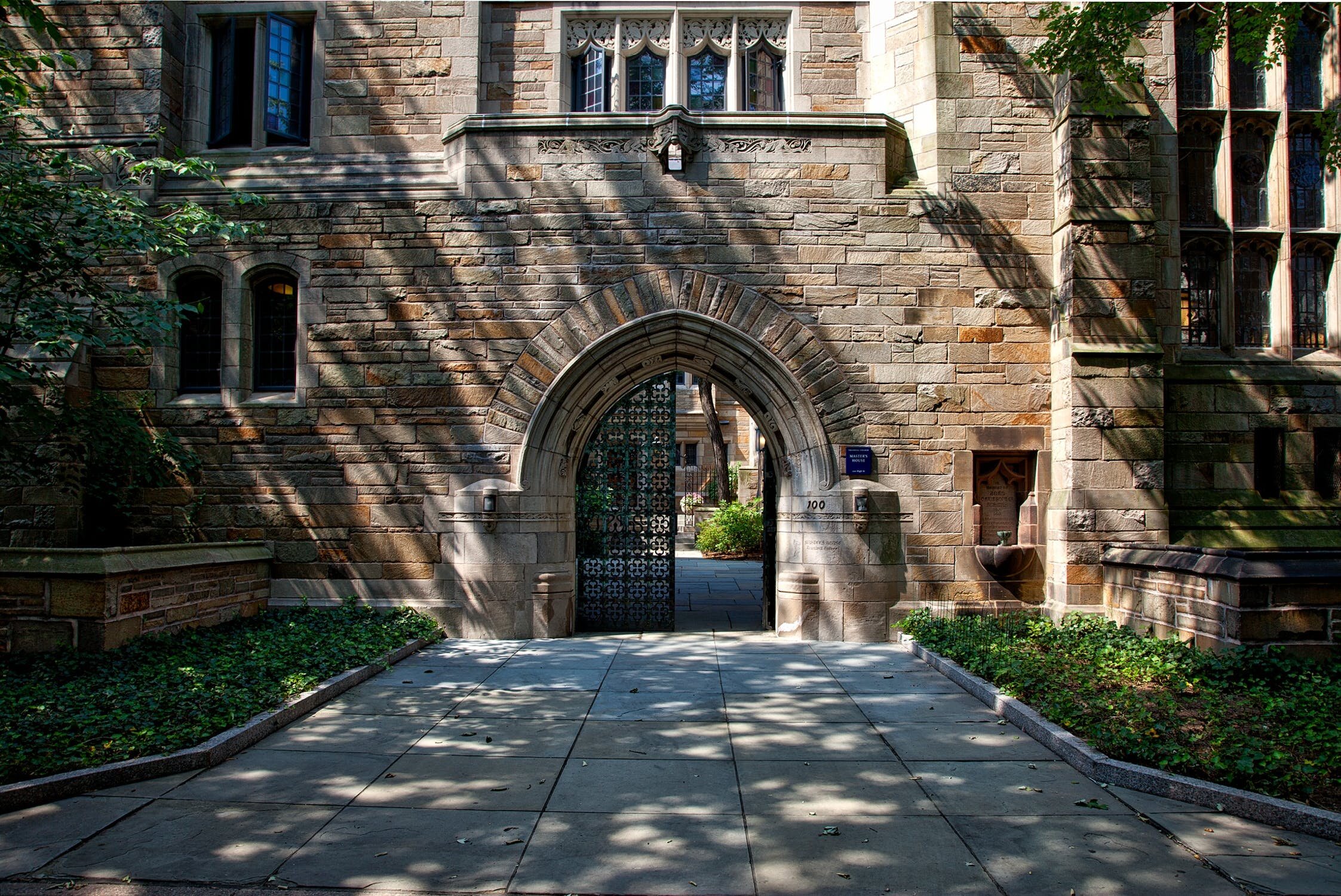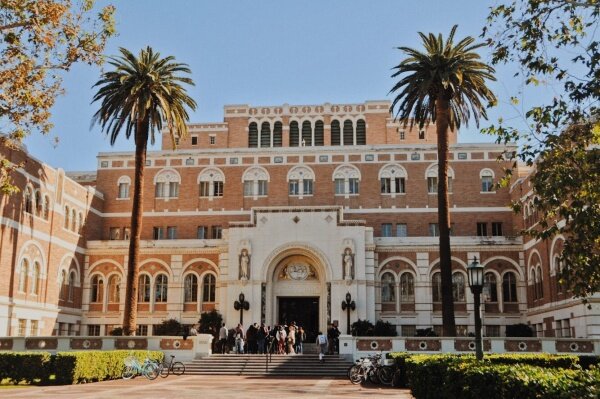The Commodification of College Education
@pixabay
When the story of the college admissions scandal broke in March of 2019, I distinctly remember my mother watching the news constantly. Her eyes were glued to the TV, glazed over after hours of watching celebrities and rich parents face charges for their illegal actions.
“This is unfair,” she said. “How could this have happened?”
Unfair, yes. Unexpected? Never.
College is the golden ticket in America. Every single year, millions of high school seniors send out applications to the most prestigious universities in the country. In these applications, teenagers distill their lives into essays and supplements, praying admissions boards will accept them. But there is no way of knowing how the students’ hard work will be received. Sure, they may have the SAT score, but do their parents have legacy? Did they take twelve AP classes? Or do they have their own small business? Or did they volunteer at the hospital every day? Or are they a nationally-ranked athlete? The list is never-ending in the dehumanizing ways students must prove why they are special.
I grew up hearing from my parents that education was the most valuable thing they could give to me. Even through tribulations, tests, and hardships, my parents firmly believe that education is valuable. And I agree. The act of becoming educated is a gift, but college is no longer just about education. After all, colleges are ranked by prestige, not by best education.
Through this multifaceted system, students are sold as goods, but the universities are picky. They have strict parameters, and even if all the boxes are checked, there is still no guarantee. College is a lottery in the United States.
Well, except if you’re rich.
Also known by its code name “Operation Varsity Blues,” the 2019 college admissions scandal shed light on several important issues with the application and acceptance process. Firstly, rich people are already at an unfair advantage with their exuberant resources. And secondly, they cheat to get what they want.
Two years after the scandal broke headlines, Netflix released Operation Varsity Blues: The College Admissions Scandal, a documentary that explores the fraudulent extent Rick Singer undertook to get rich students into elite universities. Rick Singer was the orchestrator of this massive concert. His hundreds of collegiate connections created a “side-door,” a term he coined that guaranteed college admissions for students. Rich families would make donations to Singer’s foundation, and Singer would pay off college representatives at elite universities to welcome students in. His operation ran for decades and boasted helping over 750 families. To create this documentary, Operation Varsity Blues relied heavily on expert interviews and wiretap transcripts, which were then reenacted by actors.
I have always known the college system is broken, but watching Operation Varsity Blues was enlightening in stark ways. The United States has transformed the college system drastically in just the last twenty years. Tuition has risen between 144-212% across private and public universities while acceptance rates have dropped exponentially. At Vanderbilt University, the college I attend, the acceptance rate was 24% in 2006. In 2021, it dropped to 6.7%.
In no world does 6.7% sound like a reasonable acceptance rate, but elite universities pride themselves on those low numbers. The lower the acceptance rate, the more selective the school, and the more people want to attend. Universities have become country clubs: exclusive, private, and catered to the rich.
@mellzzzyx
This reality is unfortunate because college can aid low-income students in escaping poverty. Yet the opportunities these individuals have in high school are significantly less than wealthy students. Wealthier students live in more well-funded districts with schools that have strong matriculation systems. Wealthier high schoolers also have more familial resources. For example, their families can pay for test prep and independent college counselors. Low-income students do not have these same resources, which drastically complicates their chances of escaping poverty. If they cannot score well on the SAT or ACT, they likely are not qualified for elite universities, and thus they are forced to succumb to the corrupt system. Certainly, this does not mean they cannot attend college at all, but elite institutions provide the greatest avenues for escaping poverty. It creates a vicious cycle.
Rich families don’t have to worry about finding ways to climb the socioeconomic ladder. They are already successful and occupy the top classes in America. But even with all their money, and even with all their extra resources, they still cheat.
Operation Varsity Blues also focused on the commodification of college. Commodification is “the act of turning something into an item that can be bought or sold.” College is the item. High school students are the consumers, and education is the product. Universities, therefore, act like businesses rather than educators to gain profit. This is why I was not surprised by the scandal in the same way as my mother. Colleges are money machines. How else would they act?
The question is then: why do young high schoolers keep falling into this trap? Why don’t they just stop going to college?
The issue is education. Education is valuable regardless of societal expectations. Individuals should want to learn more about their world and environment, and college is the natural next step for this process. However, college is not just about education anymore. A student can get a good education at any college in America. But, not all colleges have the same status and prestige.
This is simply why I fell for the trap, and many students (especially at Vanderbilt) sympathize with the prestige narrative. When students search for a buyer to find them “worthy,” their self-esteem is lowered because they are not considered enough on their own. I fell for the trap of prestige to feel valuable. A name-brand school has those benefits. That is half—or most—of the reason why I transferred to Vanderbilt. I sought the prestige and exclusivity I wanted as a high school senior but fell short of. I needed the validation only an elite institution could provide.
The trap of prestige is dangerous. This is ironic, as one interviewee in the documentary pointed out, because prestige derives from the French word meaning “delusion.” Delusion is right. College is fancy and shiny from the outside, but it is just tricks and games at the end of the day. We are told it is a golden ticket. What it should really be called is fool’s gold.
An opportunity to spark change, the college admissions scandal instead fueled the corrupt system more. The colleges were labeled “victims” of racketeering conspiracies, but these institutions ended up hundreds of thousands of dollars richer. Despite being fooled by the system they created, they still won. And every viewer of this scandal lost. Young students watched rich parents pay millions of dollars to get their children into Yale, Stanford, Georgetown, and Northwestern. If these affluent families were willing to abuse their wealth, the product must be incredibly worth it. Right?
Operation Varsity Blues was incredibly enlightening, but it has not changed my opinion on college. I still believe education is important for growth. I still believe it is valuable, too. And I will still attend Vanderbilt, participate in my classes, and challenge myself when I know the system is inherently broken. But, like so many others, I want an education. This is just the price we have to pay for it.
By Anjali Chanda
Writer, dog lover, and hopeless romantic.


